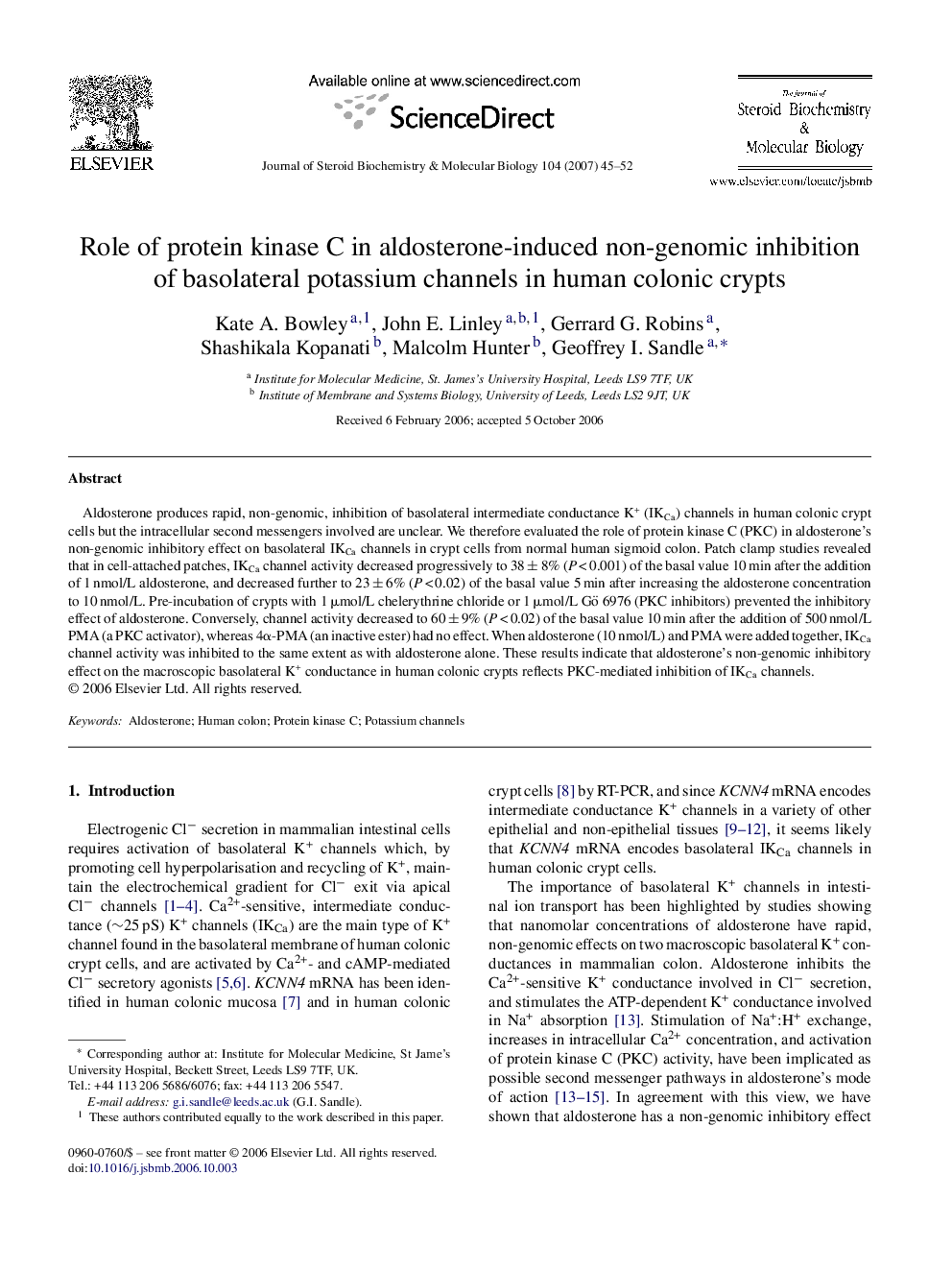| Article ID | Journal | Published Year | Pages | File Type |
|---|---|---|---|---|
| 1992288 | The Journal of Steroid Biochemistry and Molecular Biology | 2007 | 8 Pages |
Abstract
Aldosterone produces rapid, non-genomic, inhibition of basolateral intermediate conductance K+ (IKCa) channels in human colonic crypt cells but the intracellular second messengers involved are unclear. We therefore evaluated the role of protein kinase C (PKC) in aldosterone's non-genomic inhibitory effect on basolateral IKCa channels in crypt cells from normal human sigmoid colon. Patch clamp studies revealed that in cell-attached patches, IKCa channel activity decreased progressively to 38 ± 8% (P < 0.001) of the basal value 10 min after the addition of 1 nmol/L aldosterone, and decreased further to 23 ± 6% (P < 0.02) of the basal value 5 min after increasing the aldosterone concentration to 10 nmol/L. Pre-incubation of crypts with 1 μmol/L chelerythrine chloride or 1 μmol/L Gö 6976 (PKC inhibitors) prevented the inhibitory effect of aldosterone. Conversely, channel activity decreased to 60 ± 9% (P < 0.02) of the basal value 10 min after the addition of 500 nmol/L PMA (a PKC activator), whereas 4α-PMA (an inactive ester) had no effect. When aldosterone (10 nmol/L) and PMA were added together, IKCa channel activity was inhibited to the same extent as with aldosterone alone. These results indicate that aldosterone's non-genomic inhibitory effect on the macroscopic basolateral K+ conductance in human colonic crypts reflects PKC-mediated inhibition of IKCa channels.
Related Topics
Life Sciences
Biochemistry, Genetics and Molecular Biology
Biochemistry
Authors
Kate A. Bowley, John E. Linley, Gerrard G. Robins, Shashikala Kopanati, Malcolm Hunter, Geoffrey I. Sandle,
